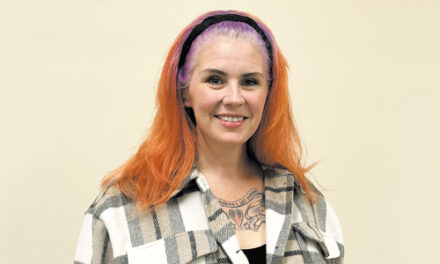Hickory – For parents, the thought of unexpectedly losing a child is terrifying, especially when the death is of an infant and the cause is undetermined. Often called Sudden Infant Death Syndrome, or SIDS, these cases are devastating.
Unfortunately, SIDS is the leading cause of death among babies between one month and one year of age. According to the National  Institutes of Health’s Safe to Sleep campaign, African American babies are at higher risk for SIDS, based on their numbers within the U.S. population, than are Hispanic, Asian or white babies.
Institutes of Health’s Safe to Sleep campaign, African American babies are at higher risk for SIDS, based on their numbers within the U.S. population, than are Hispanic, Asian or white babies.
Fortunately, safe sleep practice is something all parents can do to reduce the odds of SIDS happening to their own families. After more than 20 years of parents using safe sleep practices, the SIDS rate has dropped by more than 50 percent across all populations.
The American Academy of Pediatrics has recommended safe infant sleep practices that parents can use:
Place the baby on his or her back on a firm sleep surface such as a crib or bassinet with a tight-fitting sheet.
Avoid using soft bedding, including crib bumpers, blankets, pillows and soft toys. The crib should be bare.
Share a bedroom with parents, but not the same sleeping surface, preferably until the baby turns 1 but at least for the first six months. Room-sharing decreases the risk of SIDS by as much as half.
Avoid baby’s exposure to smoke, alcohol and illicit drugs.
After feeding, parents should move the baby to his or her separate sleeping space, preferably a crib or bassinet in the parents’ bedroom.
Offer a pacifier at nap time and bedtime.
Do not use home monitors or commercial devices, including wedges or positioners, marketed to reduce the risk of SIDS.
Infants should receive all recommended vaccinations.
Supervised, awake tummy time is recommended daily to facilitate development.
Breastfeeding is also recommended as adding protection against SIDS.
For more information on how parents can help set healthy goals for their children and receive additional support and advice, contact the Care Coordination for Children program at Catawba County Public Health by calling (828) 695-5893.
Catawba County Public Health promotes and protects the health of all Catawba County residents through preventive services, innovative partnerships, and community health improvement initiatives.
For more information, please call (828) 695-5800 or visit www.catawbacountync.gov/phealth.








